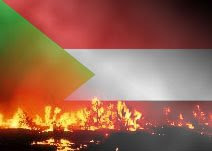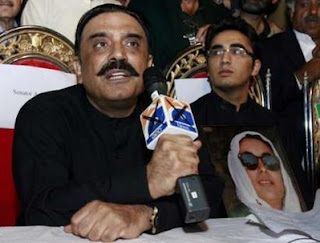
It should have been a fantastic public relations coup for the Jewish Agency. Dozens of reporters, photographers and camera crews were on hand to chronicle their latest operation, easily outnumbering the 40 new immigrants from Iran and the family members awaiting them. So eager were the assembled forces of the media for this story that no one was even thinking of arguing with the censorship over the restrictions, don't show their faces, no full names and all details about their route from Persia to Zion to be left out. And still, for at least one senior agency official, this was a hollow victory. When it was all over, and the Iranians were being bundled off to the buses about to take them to an absorption center in Be'er Sheva, he smiled bitterly and said, "we offered them everything possible and still we got such a pitiful number." The official press release, of course, told a different story. "Immigration from Iran tripled this year," was the message, statistically correct, since in 2006 only 65 arrived and this year we're up to a couple of hundred. But how can that compare to the estimated 28,000 Jews still living in Iran? It would be more accurate to say that over 99 percent of Persian Jews still prefer to remain under the rule of the Ayatollahs and Mahmoud Ahmadinejad than to come to live in the democratic Jewish homeland. Surprisingly enough, there are few real restrictions on immigration from Iran. It's relatively simple, traveling through a third country. And to make it even easier, the agency pays for potential Iranian immigrants to come to Israel and see it for themselves before taking the plunge. If that's not enough, three foundations stumped up enough money to give each $10,000. Which means that, together with the absorption basket of government benefits given to all new immigrants, a family of six can arrive here from Iran with a sizable sum to start off their new lives. So why aren't they coming? The answers you hear vary. There's the financial aspect of course. Most of the Jews living in Iran are middle-class, shopowners and businessmen, with relatively comfortable and stable lives. But those who choose to leave have trouble selling their property and, even if they succeed, the weakness of the Rial means that even those who are wealthy manage to leave with less than $50,000. Their chances of reaching a similar level of affluence in Israel are low. Not that life in the Islamic Republic is a picnic for anyone, especially not Jews. Jewish schools are forbidden, teaching Hebrew is prohibited, Jewish women are subjected to the same draconian modesty laws forced on their Muslim counterparts, while Jewish conscripts to the army are routinely humiliated and trusted only with lowly, menial tasks. Persecution is usually low-key. Yes, they do live under the fear of reprisals and pogroms, but what we so easily forget is that this is one of the oldest Jewish communities in the world, existing for almost three millennia, since the time of the First Temple. Khomeini's revolution took place only 28 years ago, and there is always the hope that things might get better in the next few years. The older generation still have very clear memories of the time when 100,000 Jews lived under the rather benign despotism of the Shah. The prospect of good times just around the corner is enough for most of them to prefer the current precarious situation to a journey into the unknown. Besides, all these years of incessant virulent anti-Israel propaganda have taken their toll, even on the Jews; they might not see the state as the "little Satan" (the U.S. is, of course, the "big Satan"), but they still view Israel with a great degree of suspicion. The dirty secret is, that, given the choice, many of those prepared to consider leaving wouldn't come to Israel since the thriving Iranian community in Los Angeles is much more attractive. Dozens of Iranian Jews are currently waiting in Vienna for green cards, or better than that, official UN refugee status, allowing them to live wherever they wish in the West. It might seem crazy to us, their living like this, on the edge of a volcano about to explode. With the imminent threat of military confrontation with the U.S. or Israel, perhaps even a nuclear war, the situation is reminiscent of the Jews of Germany in the 1930s, but to Iran's Jews, Israel seems just as much a dangerous war zone, if not more so. And who can blame them? Our incredulity over the willingness of the Jews of Iran to remain there has no place, as it is Israel that seems to be losing its appeal to the Jews. Of an estimated 7 or 8 million Jews living outside Israel, only about a quarter of a percent immigrated in 2007. Jews still remain a mobile nation, but chances are that if they're planning a move, it will be to another Diaspora outpost. The vast majority of Jews who left South Africa in the 13 years since the African National Congress came to power hopped over to Australia, one of the few major communities growing in the last decade. Predictions of a major wave of immigration from France, in the wake of Islamist anti-Semitism, have largely failed to materialize. So actually, the Iranians have a higher proportion of immigration to Israel than most Diaspora communities. There isn't one clear reason. Immigration figures are going down despite a thriving Israeli economy which has never been stronger. And it's pointless blaming the Second Lebanon War, as the downward trend started long before it broke out. Practically, the only country from which immigration is still strong is Ethiopia, where the Falashmura are fighting the government's decision to stop bringing them in six months. Almost all Jews in just about every country outside the third-world seem to think that life in the Promised Land is simply too difficult to contemplate seriously. Israel's real image problem is not with the international media, but with the world's Jews, who just seem to prefer loving it from afar.
http://www.haaretz.com/hasen/spages/939220.htmlAs in the days of Noah....
 Israel is taking seriously a threat issued by the head of the Al-Qaeda network Osama Bin Laden in which he vowed the "liberation of Palestine," a government spokesman said on Monday."We take seriously the threats of Al-Qaeda just as we take seriously threats by all terrorist organisations," Mark Regev told AFP."We have observed Al-Qaeda activities near Israel, notably in Lebanon, Jordan and in the Sinai" peninsula of neighbouring Egypt, he said."We also have information on Al-Qaeda activities in the Palestinian territories.Under such circumstances it would be irresponsible not to take these threats seriously and not to be vigilant," he said.The mass-selling Yediot Aharonot newspaper reported that Israeli intelligence services had information that Al-Qaeda was planning attacks against Israeli or American targets in Turkey.A Turkish cell of Al-Qaeda was held responsible for two twin truck bombings that targeted two synagogues in Istanbul in November 2003, and the British consulate and a British bank five days later.Bin Laden issued a new message on Saturday warning Muslims against supporting Iraq's US-backed government and said the liberation of Palestine would follow the Iraqi struggle.He said in an audiotape message that the mujahedeen would never recognise Israel nor any Palestinian government that does so and warned of "jihad from river to sea... blood for blood and destruction for destruction."
Israel is taking seriously a threat issued by the head of the Al-Qaeda network Osama Bin Laden in which he vowed the "liberation of Palestine," a government spokesman said on Monday."We take seriously the threats of Al-Qaeda just as we take seriously threats by all terrorist organisations," Mark Regev told AFP."We have observed Al-Qaeda activities near Israel, notably in Lebanon, Jordan and in the Sinai" peninsula of neighbouring Egypt, he said."We also have information on Al-Qaeda activities in the Palestinian territories.Under such circumstances it would be irresponsible not to take these threats seriously and not to be vigilant," he said.The mass-selling Yediot Aharonot newspaper reported that Israeli intelligence services had information that Al-Qaeda was planning attacks against Israeli or American targets in Turkey.A Turkish cell of Al-Qaeda was held responsible for two twin truck bombings that targeted two synagogues in Istanbul in November 2003, and the British consulate and a British bank five days later.Bin Laden issued a new message on Saturday warning Muslims against supporting Iraq's US-backed government and said the liberation of Palestine would follow the Iraqi struggle.He said in an audiotape message that the mujahedeen would never recognise Israel nor any Palestinian government that does so and warned of "jihad from river to sea... blood for blood and destruction for destruction."





















































































.bmp)

























.bmp)
























